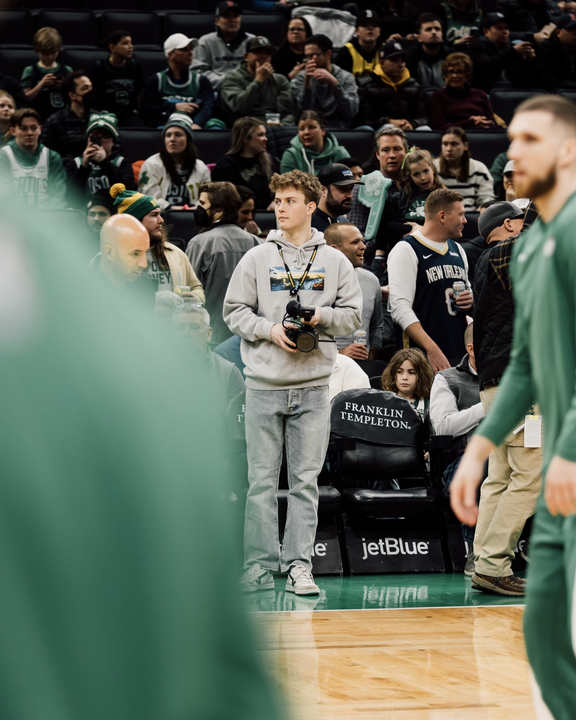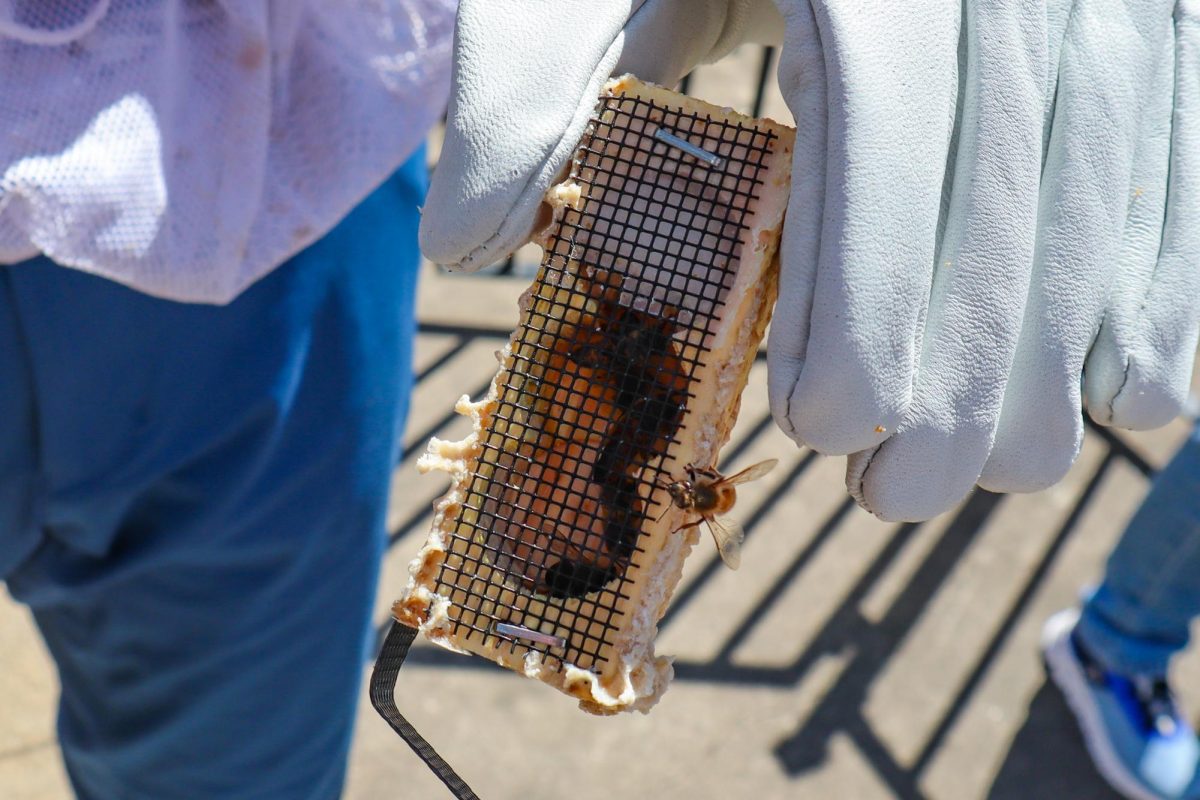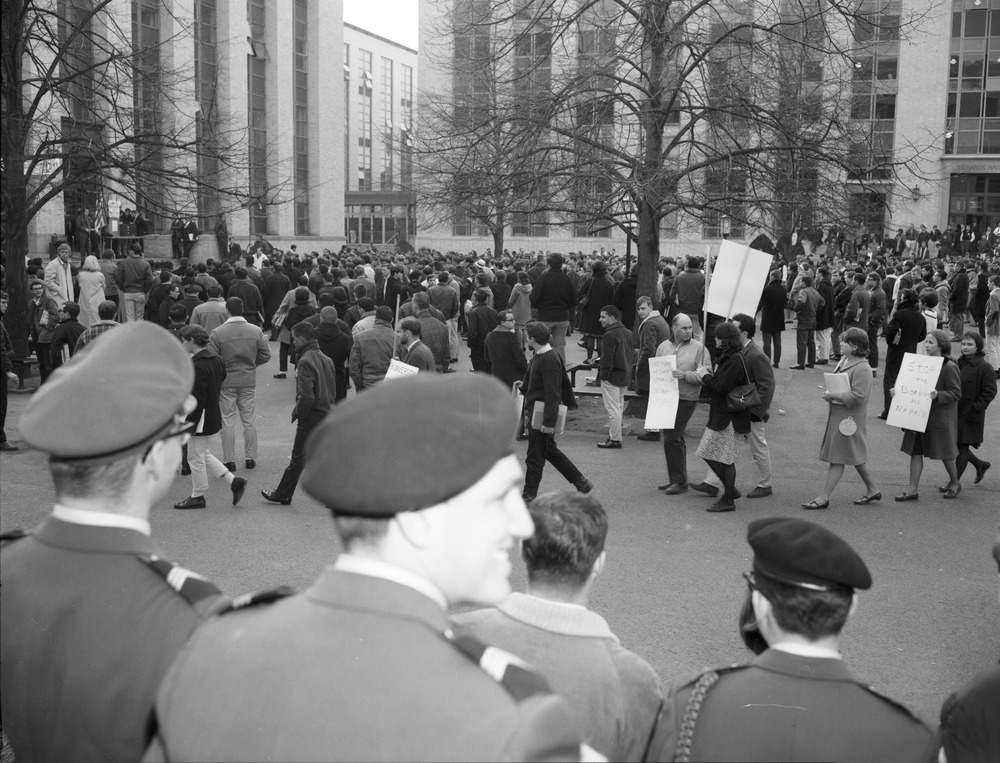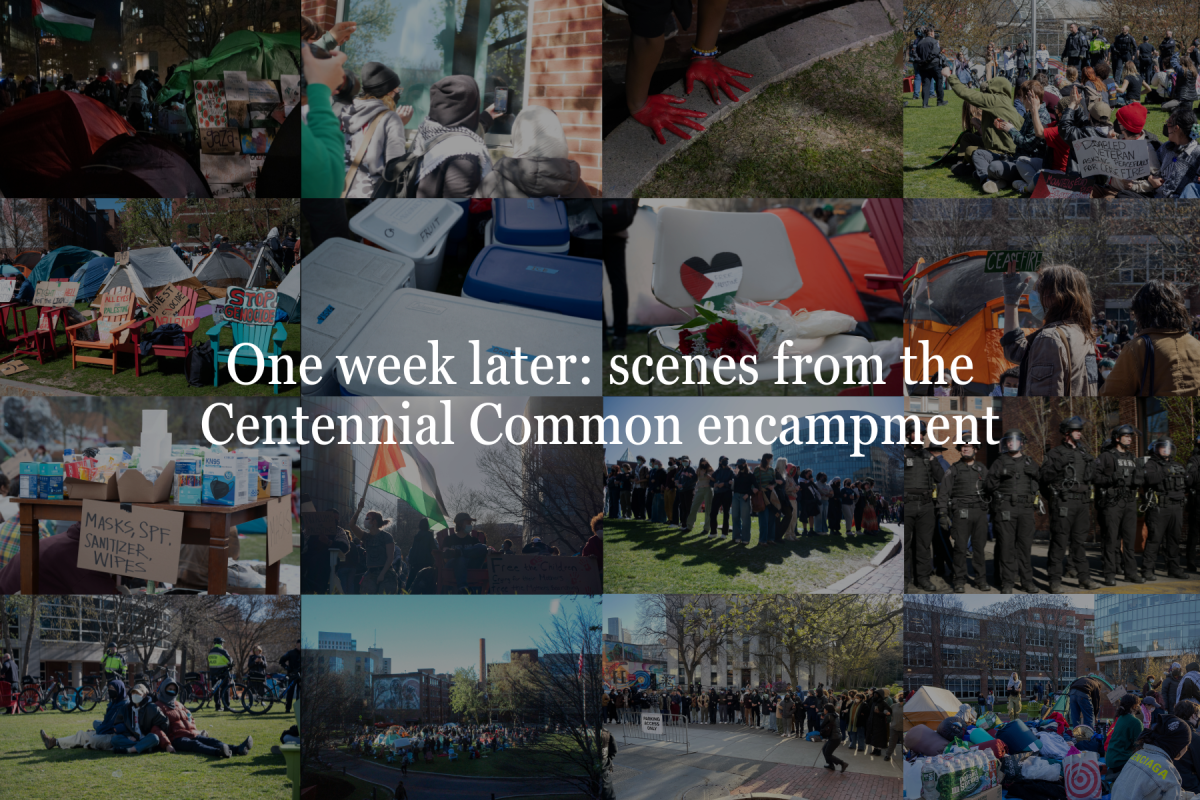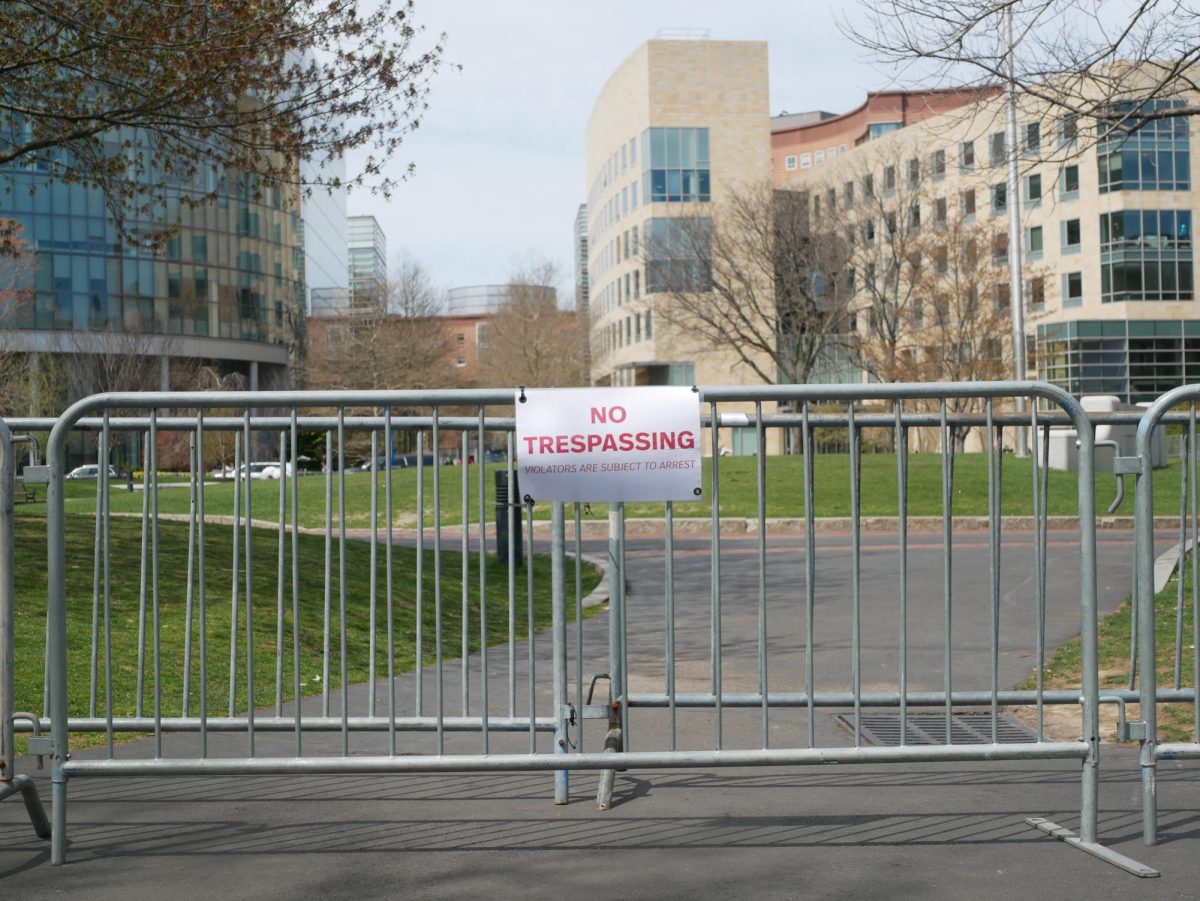President-elect discusses senate in News Q&A
By Zack Sampson, News Staff
Michael Sabo defeated Sean Maloney 2,484-910 with 226 no confidence votes to become Northeastern’s student body president for the 2011-12 academic year.
Elections Committee Chair Olivia D’Angelo announced the results at Monday’s full-body Student Government Association (SGA) meeting.
Sabo said he thought his effort to visit many students for face-to-face meetings was a key to his success.
“I think students really appreciated that I took time out of my day to go and speak with them,” he said during the interview with The News.
President-elect Sabo sat down Tuesday at The News’ office for a discussion of his experiences at Northeastern and his goals for SGA.
Huntington News: Why do you think voters chose you over Sean Maloney?
Michael Sabo: My campaign was about, like I stressed in the debates, more informal contact with students. Making me relatable, making students know that I am a real person. I know that seems crazy, but that’s the reaction I got. It’s like, “Oh I’ve seen you’re name in chalk, but now I’m actually meeting you, and it’s awesome to see that you’re real and approachable.” I think that means a lot, students really care about that.
HN: Two hundred and twenty-six students voted “no confidence” in this election. How will you try to gain their confidence?
MS: For those people who genuinely voted “no confidence” because they didn’t think I would do a good job, that’s their prerogative. What I would say is: I showed my record, the library, the swipe printing, etc. And then, going forward, I would work to communicate with them what SGA is doing.
HN: More than 12,000 full-time undergraduate students did not vote in this election. How will you interest them?
MS: I would definitely work to get communication out, both with voting and SGA. That goes with community events that I talked about. Bringing in Husky Pride, Die-hard Dogs shirts, meet-and-greets with athletes, all kinds of things to get regular students into the fold that would not normally have a stake in SGA, giving them a reason to care.
HN: What are some of SGA’s good qualities? How will you maintain them?
MS: I think that our biggest attribute is that we do care and we’re very excited. We need to find the best way to streamline, gather results and communicate.
HN: What are some of SGA’s current problems?
MS: I think the general perception among the student body is that we are too inward looking. We spend far too much time debating our own bylaws, and some of them genuinely need to be fixed. But there comes a time when we need to stop discussing the label of a position and start worrying about whether or not student groups can get funding efficiently or whether or not a student group can table.
HN: How will you be similar to Ryan Fox as president?
MS: He sets goals, and he tries to meet them as efficiently as possible. I think that’s something I’m going to bring to the table.
HN: How will you be different from Ryan Fox as president?
MS: [At a recent SGA meeting] there was an issue with the referenda, the interpretation of the bylaw. There was conflict because the Senate voted in the referenda under the assumptionl, I’m just using this as an example, that 750 signatures were required before it could be put to Senate, to address feasibility and all this other stuff. What President Fox did was he said, “This isn’t clear enough, so therefore, I think that we’re going to go around that.” If the Senate votes on something with the assumption of how something is going to proceed, that’s how it’s going to proceed. It’s not going to proceed because I see an opportunity that I can get around it this way. That’s not how it’s going to run at all.
HN: How will you facilitate communication with the student body?
MS: Maybe we can have more joint administration student meetings. I feel like students will really feel like they’re being heard if they have a chance to directly speak to an administrator.
HN: How will you maintain peaceful negotiations between the administration and SGA?
MS: I would stress that, as I have for vice president of academic affairs, I represent the students and this is how we feel. I want you to know this. We want our opinions to be known, and then we can work collaboratively to figure out a solution that benefits both of us.
HN: How will you obtain more student opinions?
MS: In terms of myNEU, I want to implement a feedback system, comment box, whatever you want to call it, where every student has a Husky email account. It’s easily accessible, just as easy as it was to vote. You should be able to comment on what you think your government is doing and what it could be doing better, and what the administration is doing, what it should be doing better.
HN: In addition to office hours, how will you make yourself available to students?
MS: My phone number will be available, my email will be available. “Pint with the President” is something that I will do. It’s something that I was absolutely serious about. Some people on my opponent’s campaign may think we’re making more of a joke out of it. I wasn’t intending it to be a joke at all. There’s a huge opportunity there, in a casual setting, we’re in college, we’re older. I don’t think it’s not appropriate to have a beer and talk with students. I will go even a step further, I’ve said that I will be releasing, not the exact e-board minutes, but disclosing what we talked about at e-board as long as it’s not going to compromise contracts or things that can’t be disclosed.
HN: What is your opinion of the NU P.L.E.D.G.E? How will you change it?
MS: We need to build connections that go beyond the piece of paper, first of all, because that’s not worth anything. Having a student sign something that they didn’t have any part in writing in, that they don’t have any stake in, is going nowhere to solve the problem. The administration can write as many pieces of paper for us to sign as they want, that doesn’t mean it’s going to do anything. I think we need a new proactive approach.
HN: How will you fulfill your campaign promises?
MS: One of the things that I’ve done this year, as VP, is on my desk I literally keep a copy of the platform I ran in. The candidate sheet that was handed out, I literally have it tacked to my desk so that whenever I sit down, I see what I wanted to do. It’s something as simple as that, as that reality check – “This is what I wanted to do, where am I?”
HN: Which one of your promises is most likely to falter?
MS: In terms of getting a long-term initiative, I would say it’s probably the myNEU comment [from earlier in interview]. I think we’re going to have to work out a lot of logistical issues for this to happen: where on the website, how to advertise it, things like that.
HN: At the end of your term, what do you hope your legacy will be?
MS: We’re a private school. We pay a lot of money to go here, and we’re moving up in the rankings, 69, but we need to catch up our systems. At the end of the day, if after a year, students tell me, ‘You know what? You made it easier to go to Northeastern because now it’s easier for me to get out my message as a group. It’s easier for me to put on events and have events with friends. It’s easier for me to give you my feedback,’ then I’ve done my job.


